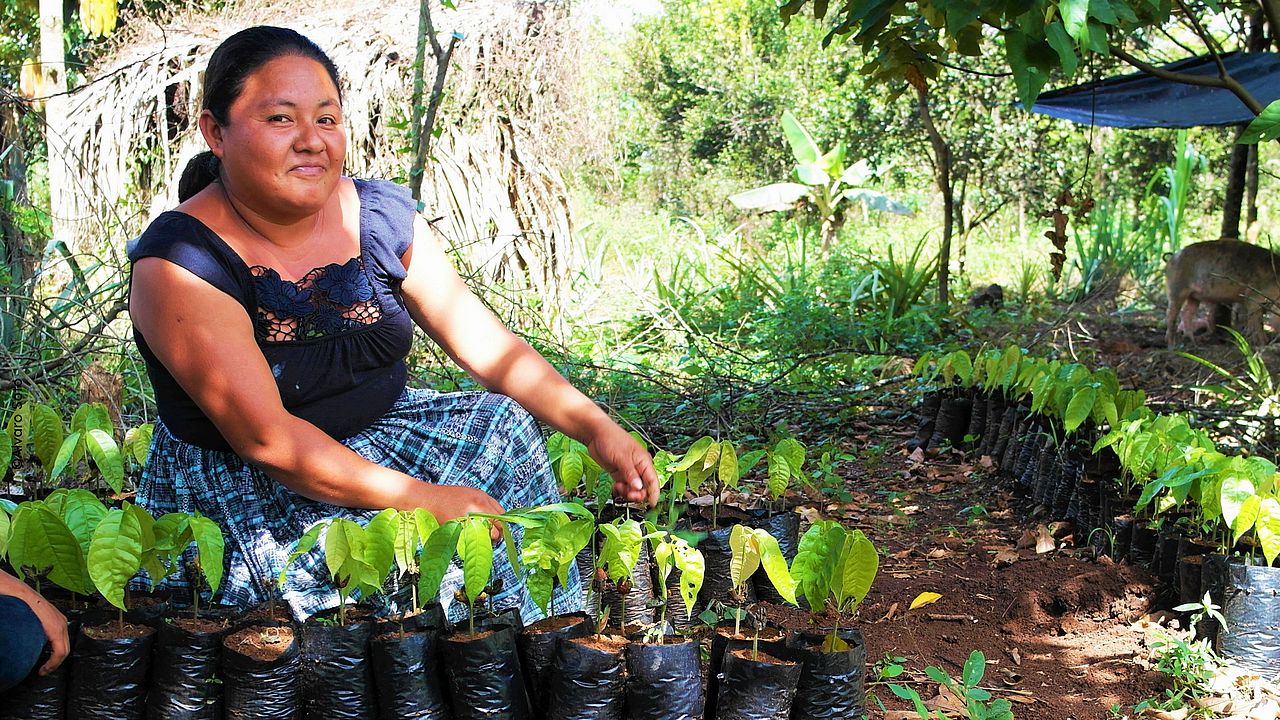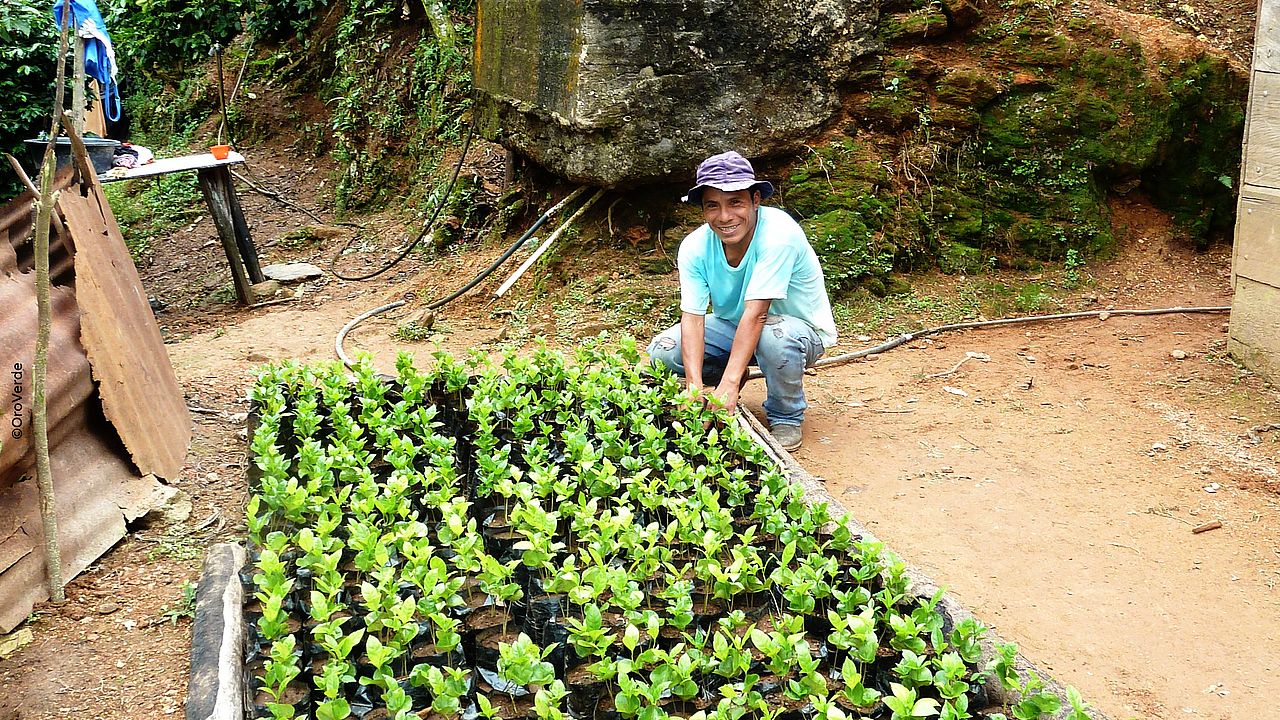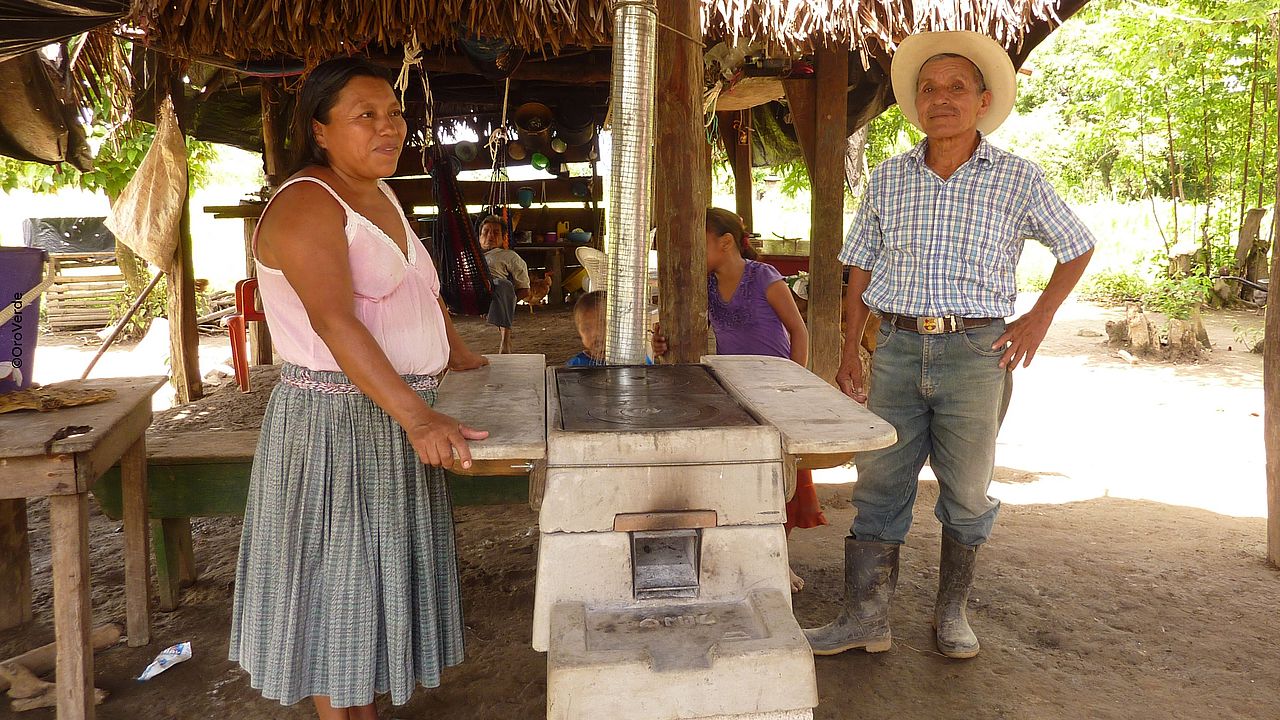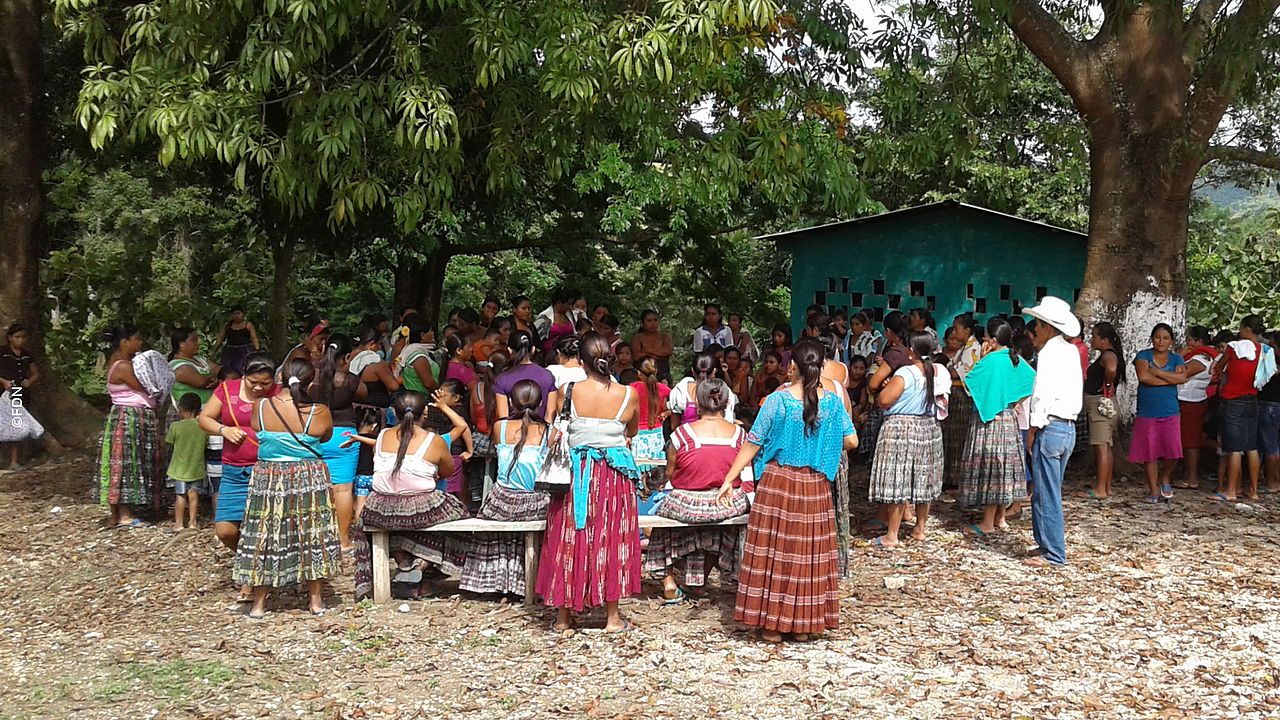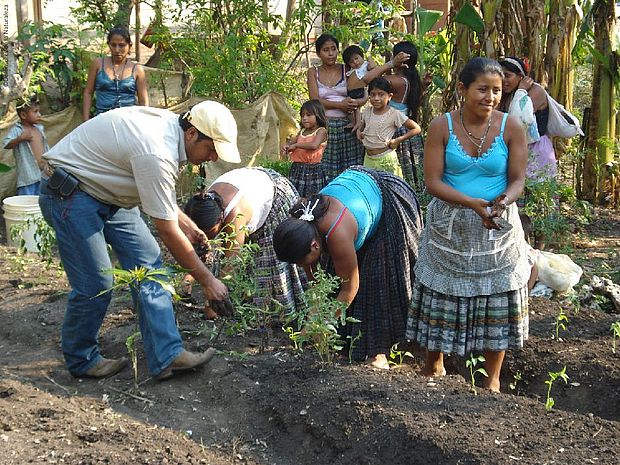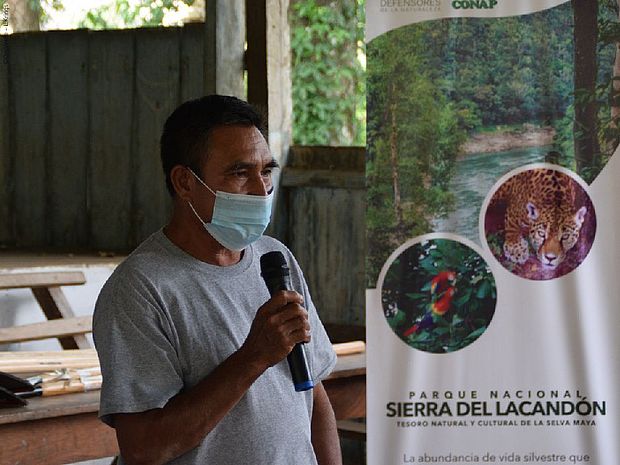For years, we have been promoting the sustainable development of communities in eastern Guatemala through various projects. Our goal is to safeguard the rainforest while providing vulnerable communities with new opportunities in the face of climate change. This has resulted in a comprehensive concept that is now to be extended to other communities.
Strengthening Conservation and Resilience Rural Communities
The protected areas in eastern Guatemala have a main role in conserving their national biodiversity. Land use change driven by the expansion of the agricultural frontier, mining, forest fires and illegal logging is the main cause of deforestation.
The livelihood of people in rural areas depends on agriculture. A large proportion of Guatemalan population lives in extreme poverty, where malnutrition and undernourishment are a major burden.
The effects of climate change, such as floods, droughts, erosion and landslides, result in crop and income losses and therefore exacerbate their situation. However, the people and authorities lack efficient concepts and knowledge on how to adapt to this new reality.
Climate Adaptation and Sustainable Development
OroVerde has been active in the Bocas del Polochic Biosphere Reserve and the Maya Biosphere Reserve for several years now, implementing various measures to protect and reforest their tropical forests.
The introduction of sustainable agricultural methods such as beekeeping and agroforestry systems, so-called forest gardens, health courses and firewood-saving cooking stoves as well as better disaster preparedness in the event of forest fires, droughts or floods are helping to improve people's living conitions.
Appropriate nature-based solutions are being found locally in order to better cope with the effects of climate change. This includes, for example, more drought-resistant planting, the efficient collection and use of rainwater, the stabilization of slopes through targeted planting and many other climate adaptation measures.
The EcoImpulso recipe for success is getting around
What has been tried and tested in recent years is now to be upscaled to other communities. Many communities outside the project areas have already expressed a strong interest in implementing the effective measures for rainforest protection.
The model is being presented in discussions with political decision-makers so that it can be incorporated into the development management of their communities and at national level.
With the support of technical experts, a handbook has been produced to pool experience and knowledge. We promote mutual exchange, workshops, and guidance during implementation to ensure that the measures can be meaningfully adapted to the specific local conditions.
This model is now being extended to three project regions and 46 municipalities, involving a further 1,167 families.

The Project at a Glance
EcoImpulso
Using nature-based solutions for sustainable rural development to protect the rainforests.
Project duration
2023 – 2025
Project regions
Three regions in Guatemala
Main objectives
- Sustainable development of rural communities
- Improving living conditions
- Mitigating the consequences of climate change
Key focus areas
- Climate and resource protection
- Sustainable management
- Biodiversity and protected areas
Four components leading to success
- Food security: By establishing forest gardens, communities can secure and improve their food supply. These gardens are particularly resilient to drought and heavy rainfall. Many have already been enriched with cocoa, bananas, and other plants. Additionally, small-scale animal husbandry, such as chicken farming for egg production, and rainforest beekeeping have been introduced. Further, more families will be trained in creating home gardens to ensure access to healthy and diverse food from their own sources.
- Forest protection and restauration: In order to restore degraded and deforested areas, seedlings are pre-grown in tree nurseries. So far, these have been planted on an area of over 330 hectares. There are management plans for a further 1068 hectares.
- Measures for home and stove: The introduction of firewood-saving stoves, cooking classes, water filters, and other initiatives has proven effective in significantly improving people's health. The stoves produce less soot, which has greatly reduced the risk of common respiratory illnesses. Additionally, these stoves decrease firewood consumption, thereby reducing the pressure on forests.
- Disaster risk reduction: Especially in times of climate change, it is important to be prepared for natural disasters such as forest fires, floods and landslides. We are therefore working closely with the National Disaster Risk Reduction Coordination Office as part of the project to ensure that all residents know how to protect themselves in the event of a disaster.
Project partners

FDN is a private foundation for sustainable development and nature conservation and manages the project in Guatemala. Its tasks are to develop forest management and protection plans, as well as to advise and support the local population in reforestation and forestry.
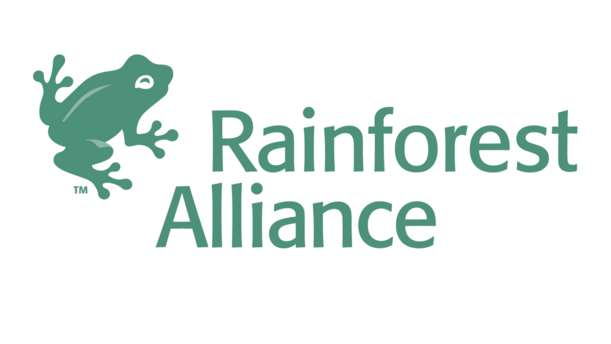
The RA is an international, independent non-profit organization from Guatemala that works for the preservation of biodiversity and for a more sustainable world on a social and market economy level in order to protect nature and improve the lives of agricultural and forestry farming families.
... the German Federal Ministry for Economic Cooperation and Development (BMZ).
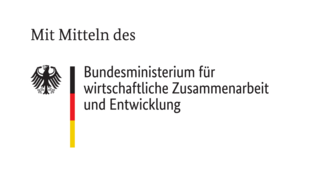
Questions about the project?

Mauricio Santamaria
Program Manager
+49 228 24290-66
msantamaria[at]oroverde[dot]de
Photo credits: OroVerde/M. Metz (Title), Alvaro Soto (Woman in Agroforestry System), OroVerde (Nursery), OroVerde (Stove), FDN (Assembly)


